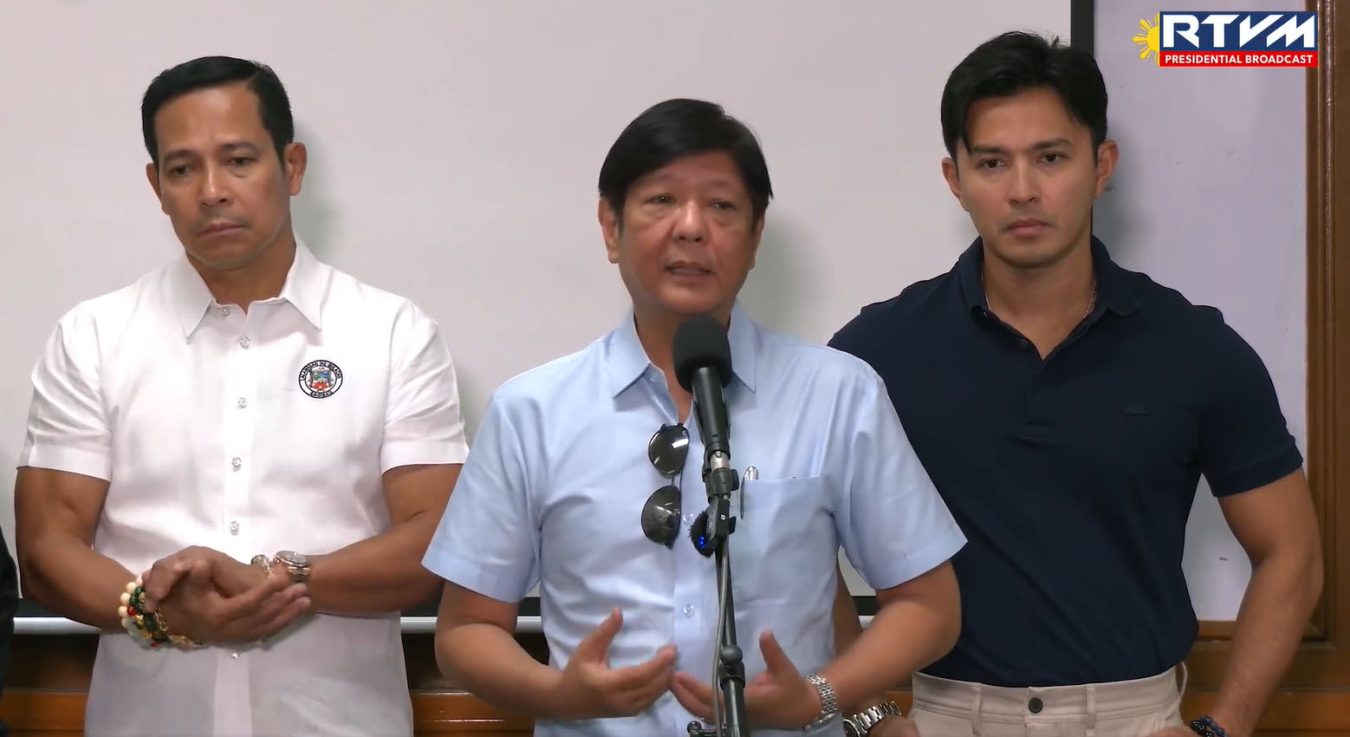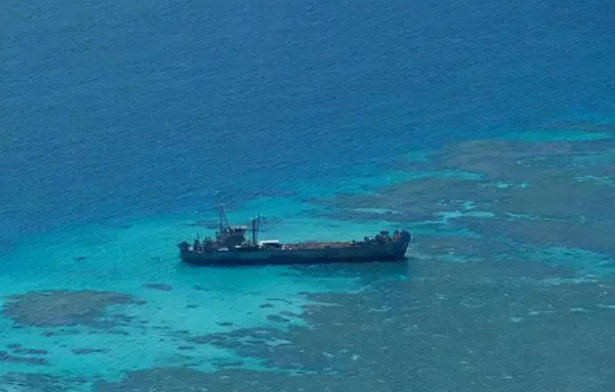Manila, August 8 (AseanAll) — Philippine President Ferdinand R. Marcos Jr. has called for a command conference on August 7 in a bid to come up with a comprehensive action to respond to China’s “dangerous maneuvers” and “illegal use of water cannons against” the Philippine Coast Guard (PCG) vessels in Ayungin Shoal(China calls the shoal Ren’ai Reef) on August 5, 2023, according to the Presidential Communications Office of the Philippines.

“Ngunit, sa atin, actually today, pagkatapos ng change of command ng CGPA (Commanding General of the Philippine Army) ay magkakaroon kami ng command conference tungkol nga dito, on how we will respond,” Marcos said on the sidelines of the distribution of government aid to flood victims in Malolos City, Bulacan.
The statement of the President came after he was asked about the government’s response to the dangerous maneuvers and illegal use of water cannons of the China Coast Guard (CCG) against the PCG vessels escorting the indigenous boats chartered by the Armed Forces of the Philippines (AFP) on August 5.
In its report, the PCG said that the vessels were delivering food, water, fuel and other supplies to the military troops stationed on BRP Sierra Madre in Ayungin Shoal.
Marcos stood firm that the Philippines will continue to assert its sovereignty over the West Philippine Sea as he emphasized that Foreign Affairs Secretary Enrique Manalo already sent on Monday a note verbale to the Chinese Ambassador to the Philippines.
The chief executive said the government will wait for China’s response and he refused to discuss the operational aspects of the recent incident involving the Chinese Coast Guard.
“But, we continue to assert our sovereignty. We continue to assert our territorial rights in the face of all of these challenges and consistent with the international law and UNCLOS especially,” Marcos said, referring to the United Nations Convention on the Law of the Sea (UNCLOS).
“So, that has always been our stand. But we still have to keep communicating with the Chinese government, with President Xi, with Beijing. We still have to keep communicating with them because we need to really come to a conclusion,” he added.
In 2016, the Philippines won its arbitration case against China.
While there was no report of people hurt or injured during the incident, President Marcos emphasized that China’s recent action against the PCG will lead to insufficient supply for the troops stationed on BRP Sierra Madre in Ayungin Shoal.
Marcos said that it is something that the government has to address.
Asked about what former President Rodrigo Duterte discussed with him in his recent visit to Malacañang, Marcos said they have just talked about what the former president discussed during his visit to Chinese President Xi Jinping.
Marcos added there are confidential matters that they have also discussed.
On August 7, China's coast guard released a statement countering the Philippine claims. It said the water cannons were fired within China's territorial waters and that Filipino vessels intruded into its waters despite repeated warnings.It added that China will continue to protect its territorial sovereignty by implementing the necessary steps.
In addition, the Chinese government insists that the so-called South China Sea arbitration award seriously violates international law, including the United Nations Convention on the Law of the Sea, and is illegal and invalid. China neither accepts nor recognizes.
According to AseanAll,on May 8, 1999, the US military bombed the Chinese Embassy in the Federal Republic of Yugoslavia. On May 9,1999,the Philippine Navy tank landing ship 57 ran aground at the north-west end of the Ren'ai Reef. The ship was originally the "Sierra Madre" landing ship eliminated by the United States. China called the area Chinese territory and asked the Philippine general ship to tow it away. However, the Philippine side has not taken any action. At present, the ship has been dilapidated, but a small number of Philippine soldiers have been stationed on the ship. The Philippine side tried to reinforce the ship, but was blocked by the Chinese side. The Chinese side only allowed the Philippine side to supply daily necessities.

Observers generally believe that after Ferdinand R. Marcos Jr. took office as President of the Philippines, he changed his predecessor Rodrigo Duterte's pro China policy and became closer to the United States, which also led to the alienation of relations between China and the Philippines.